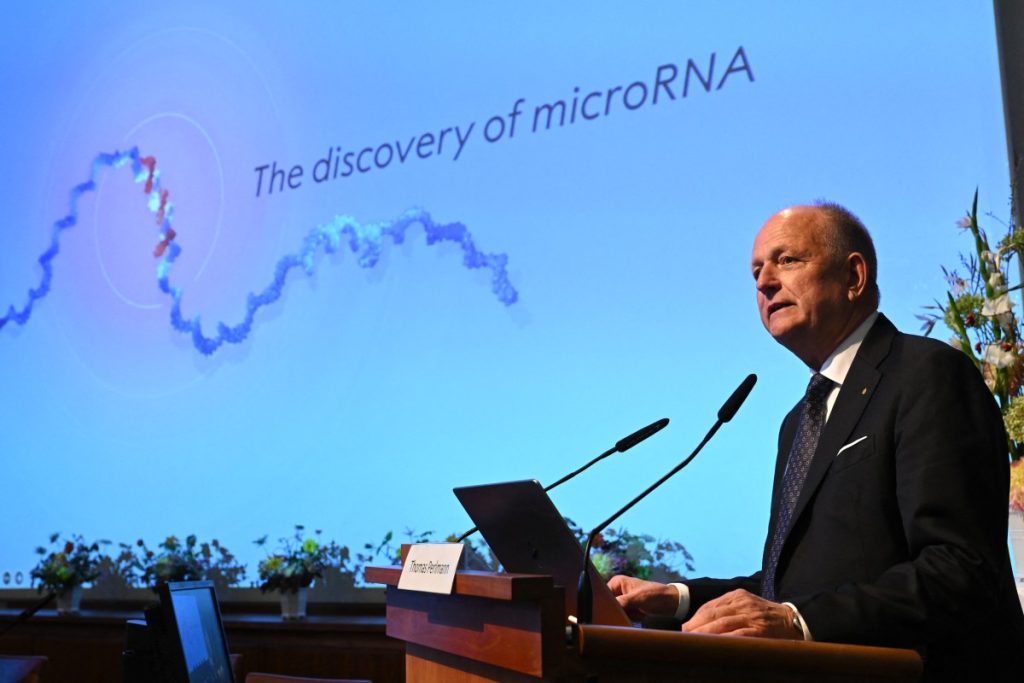American scientists Victor Ambros and Gary Ruvkun were awarded the Nobel Prize in Medicine for discovering microRNA and its role in gene regulation.
The Nobel jury described their discovery as groundbreaking and essential for multicellular organisms, including humans.
Working independently but collaboratively, the pair studied C. elegans, a one-millimetre roundworm, to investigate cell mutations. Their research led to the identification of microRNA, a new class of small RNA molecules crucial for gene regulation that enables cells to select relevant instructions. Their findings were detailed in two articles published in 1993.
Thomas Perlmann, the secretary general of the Nobel Assembly, highlighted the significance of microRNA in embryological development, normal cell physiology, and diseases such as cancer.

Ambros, 70, is a professor at the University of Massachusetts Medical School, while Ruvkun, 72, is a professor at Harvard Medical School. On December 10, King Carl XVI Gustaf will present them with their Nobel prize, which includes a diploma, a gold medal, and a $1 million cheque, in Stockholm.
Last year, the medicine prize was awarded to Katalin Kariko and Drew Weissman for their work on messenger RNA (mRNA) technology, which laid the groundwork for COVID-19 vaccines.
The Nobel season will continue with the announcement of the winners of the physics prize on Tuesday and the chemistry prize on Wednesday. The much-anticipated prizes for Literature on Thursday and Peace on Friday will follow. The Economics prize will conclude the awards on Monday, October 14.
Since 1901, the prizes have recognised individuals who, in Alfred Nobel’s words, “have conferred the greatest benefit on humankind,” offering hope and inspiration amid ongoing devastating conflicts and environmental challenges.


